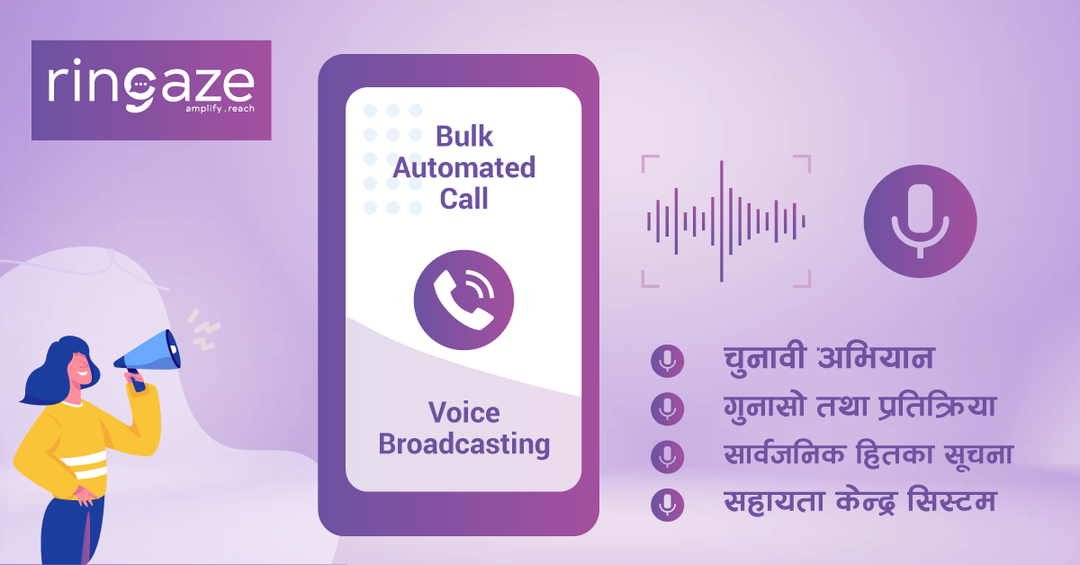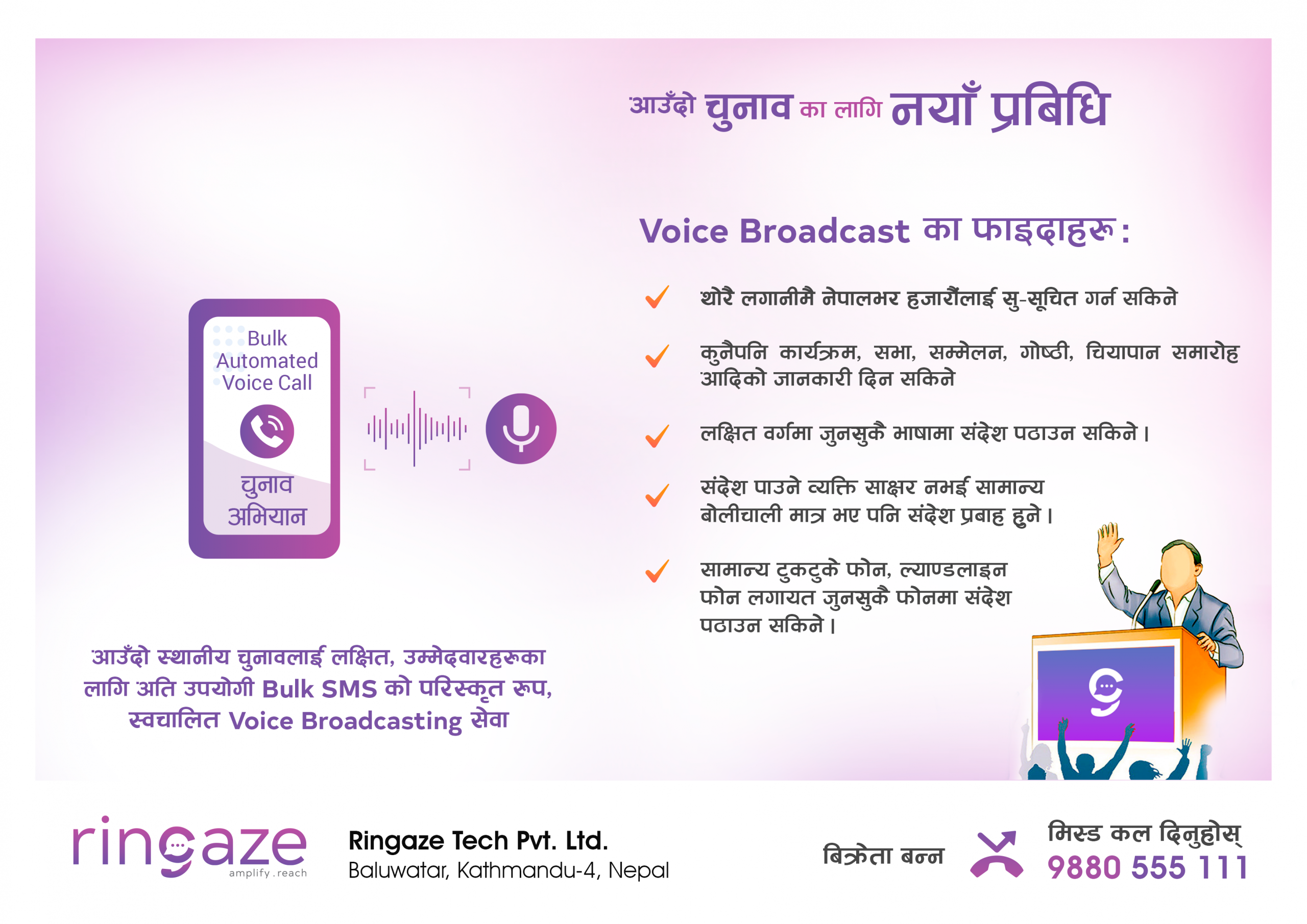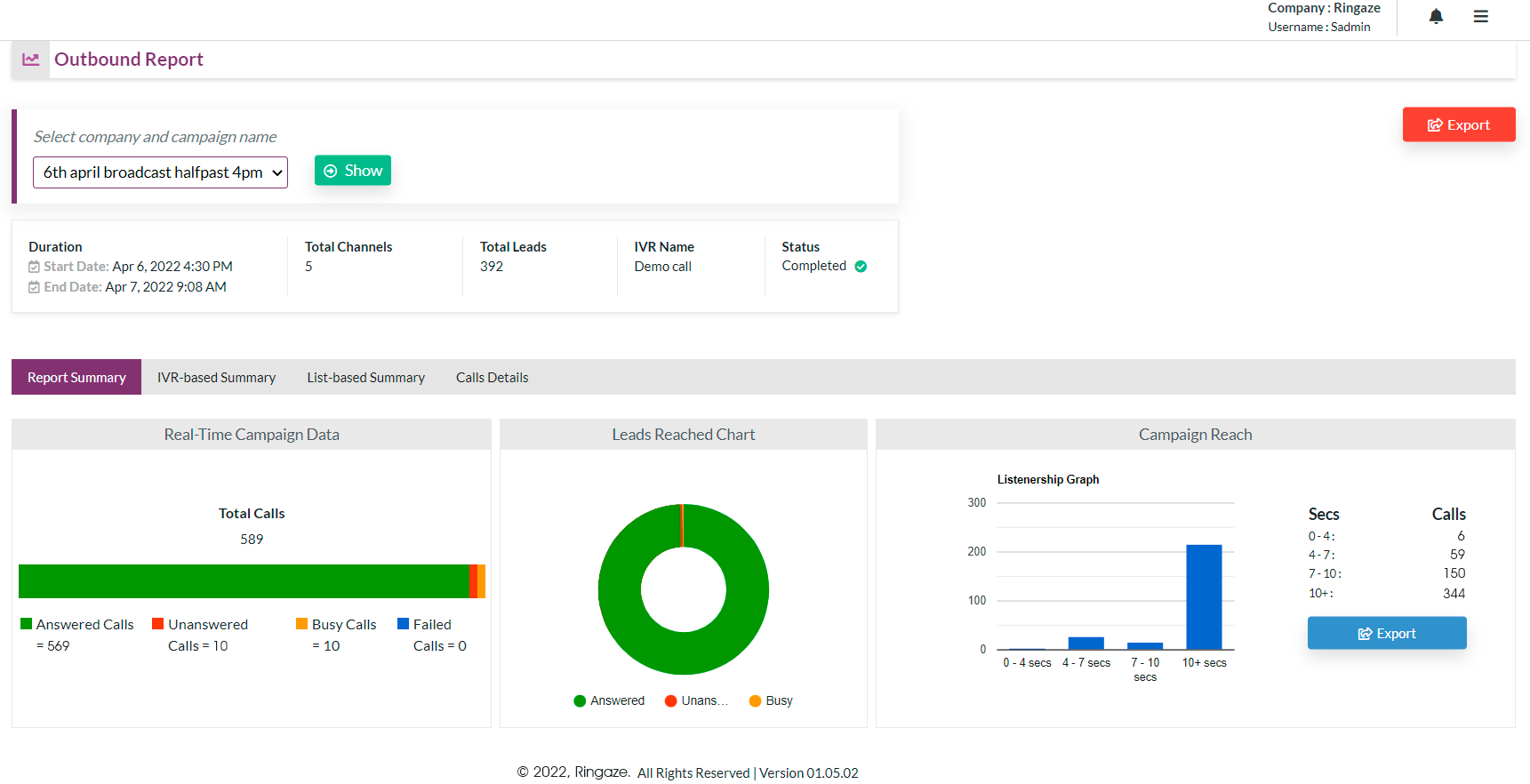A Nepali startup Ringaze is offering a voice-based mass communication service called a voice broadcasting system. It can concurrently broadcast voice messages to hundreds or thousands of people using a SIP (Session Initiation Protocol) number.

A voice broadcasting system is a more effective way to communicate a message than bulk SMS, particularly in rural areas of Nepal where people may struggle to read text messages.
The service can be used for both commercial and community purposes. It was launched by Ringaze, a VoIP-based startup, last year in April 2021 in partnership with Voxcrow, a voice-based communication service provider for organisations.
Services and Pricing
Dipesh Regmi, executive chairman of Ringaze, said that the system was successfully tested throughout its first year of operation by serving more than 500 clients. He said that after the service was proven to be effective, it was made available to both individuals and organisations.
Regmi stated that they put the system to the test effectively during a recent political general convention held a few months ago. It was used by candidates in the convention to ask representatives to vote for them.

Along with soliciting votes in elections, it can also be used to share information about a company’s products or services, bank notices, or invite guests to events, parties, or family reunions.
The 2021-founded startup uses this system to provide services including phone surveys, automated bulk calling, a feedback management system, reviews, polls, and inbound IVR (Interactive Voice Response). Ringaze charges Rs. 3.5 per call for the service, including the telecom fee and the system fee.
The service can be used for emergency warning systems, public service announcements, quick impact assessment, post-distribution monitoring, election and campaign promotion, a helpline and support system, and more.
ALSO READ: IME Group Subsidiary Swift Technology Acquires Missed Call Service Provider EkGhanti
Features
Ringaze can call up to 2,000 numbers concurrently and also offers IVR technology. Using the technology, the system can collect feedback from the call recipient. For instance, if the system is used to invite visitors to a certain event, the receiver can indicate whether or not they will be able to attend.
“Compared to bulk SMS, where it is unknown how many people read the message, voice broadcast technology can tell how many people picked, how long they listened, and what action they took.
The action can be a response to the survey question, such as “I will participate” (press 1) or “not participate” (press 2).”
— Anil Dhakal, Manager, Brand & Marketing, Voxcrow
The client can then download the report of all broadcasts and calls. In addition to IVRs, the report includes call status: answered, unanswered, busy, and failed; listenership and peak hours; and demographics. The report can also be downloaded in Excel or CSV file format.

In addition, it features multiple calls retry feature, live monitoring, options for do-not-call, and campaign scheduling, among others.
Ringaze already operates in more than 70 districts across Nepal in partnership with telecom companies. They have previously worked on campaigns and elections for Nepali Congress, Marwadi Sewa Samiti, Nepal Automobile Association, Nepal Engineering Association, and Nepal Bar Association, to name a few.
The startup has also provided technology to Nepal’s prominent leaders, including Shekhar Koirala, Prakash Man Singh, Gagan Thapa, Bimalendra Nidhi, and Prakash Sharan Mahat, among others.
According to Ringaze, during the general convention campaign, 92.76% of 13,029 calls were answered, while 99.56% listened to the entire broadcast.
Since the service is based on a pre-recorded voice system, it does not have a language barrier. So, the company intends to expand globally as well, serving international clients through its automated voice-based service.
Safety
If the call to the target number is busy or unreachable, the system can automatically retry after a specified duration. However, the system does not call the same number more than three times to avoid annoyance.
In the case of election campaigns, the system will not allow calls from two clients to the same number. It’s a first come first serve service.
There is also an option to turn on the do-not-call feature. Additionally. the startup requires clients to take the name of the organisation when broadcasting voice. It lets consumers know about the source of the message.
READ NEXT: Sajilo Marmat Sewa Rebranded as Sajilo Sewa after Securing NPR 100 Million Investment
-
TechLekh Awards: Best Bikes of 2025 in Nepal Winners!Motorcycling in Nepal has always meant more than just getting from one place to another.…
-
TechLekh Awards: Best Cars of 2025 in Nepal Winners!Electric vehicles continue to dominate Nepal’s market in 2025, and Chinese manufacturers still lead the…
-
Much-Awaited TVS Apache RTX 300 to Launch in Nepal This YearHIGHLIGHTS TVS Apache RTX 300 price in Nepal is expected to be between Rs. 6.50…
-
Tata Harrier EV Becomes One of India’s Best-Selling EVs, But When Will It Arrive in Nepal?HIGHLIGHTS Tata Harrier EV price in Nepal is expected to start between Rs. 65 Lakhs…
-
Global Accessory Brand ‘Oraimo’ Officially Launches in Nepal with 12 ProductsA new player has officially entered Nepal’s mobile accessories market, and it’s already making a…

















